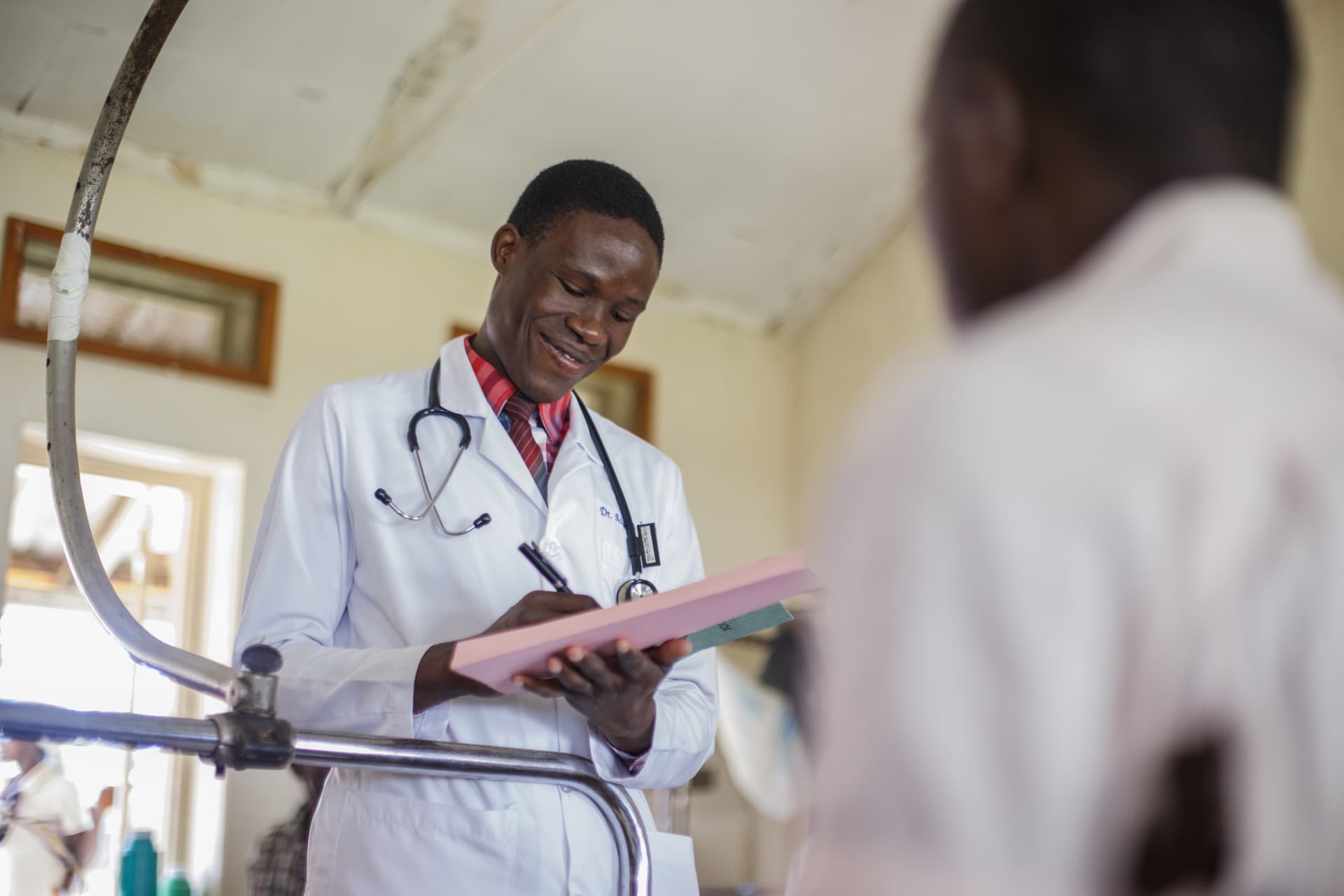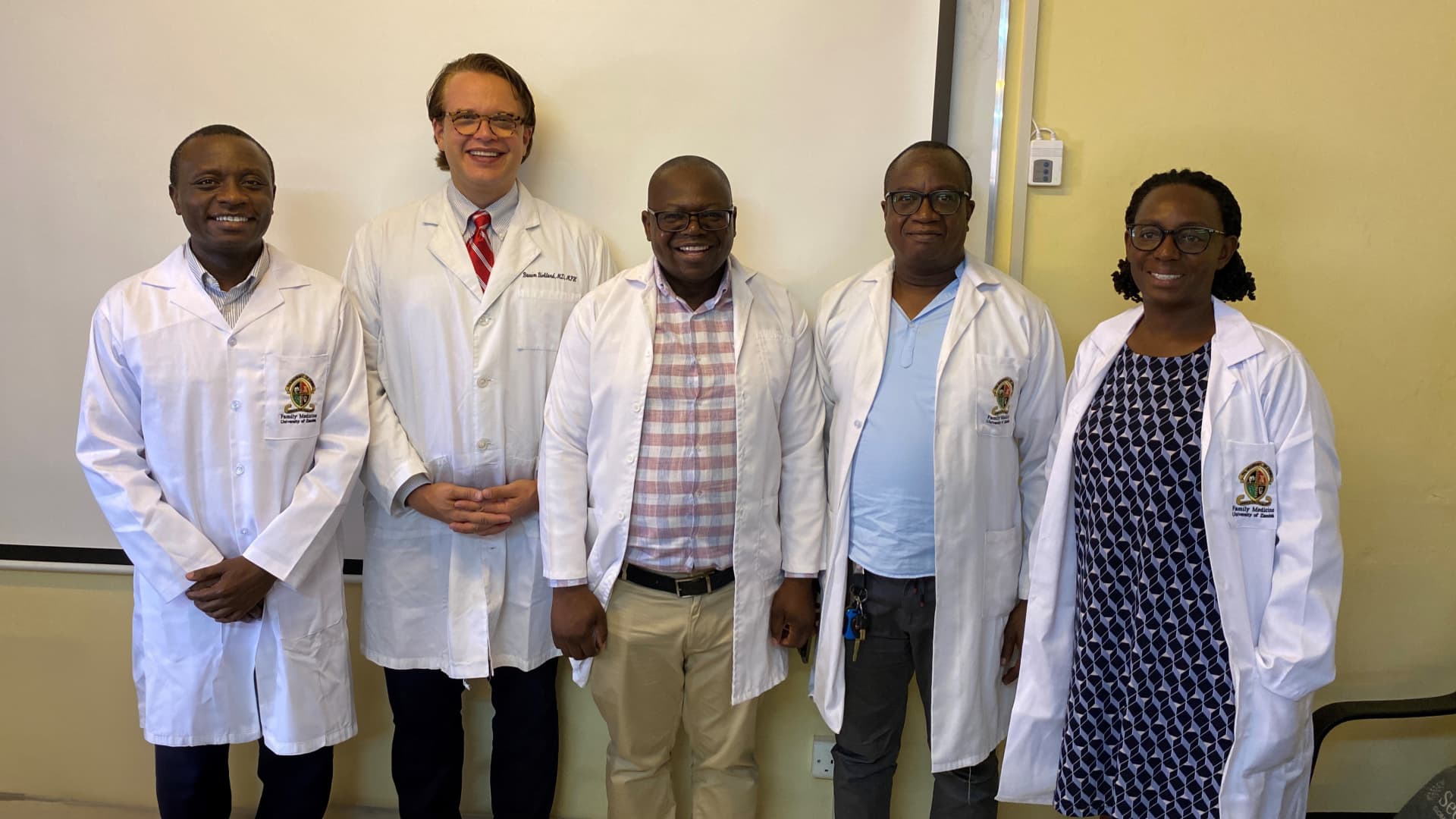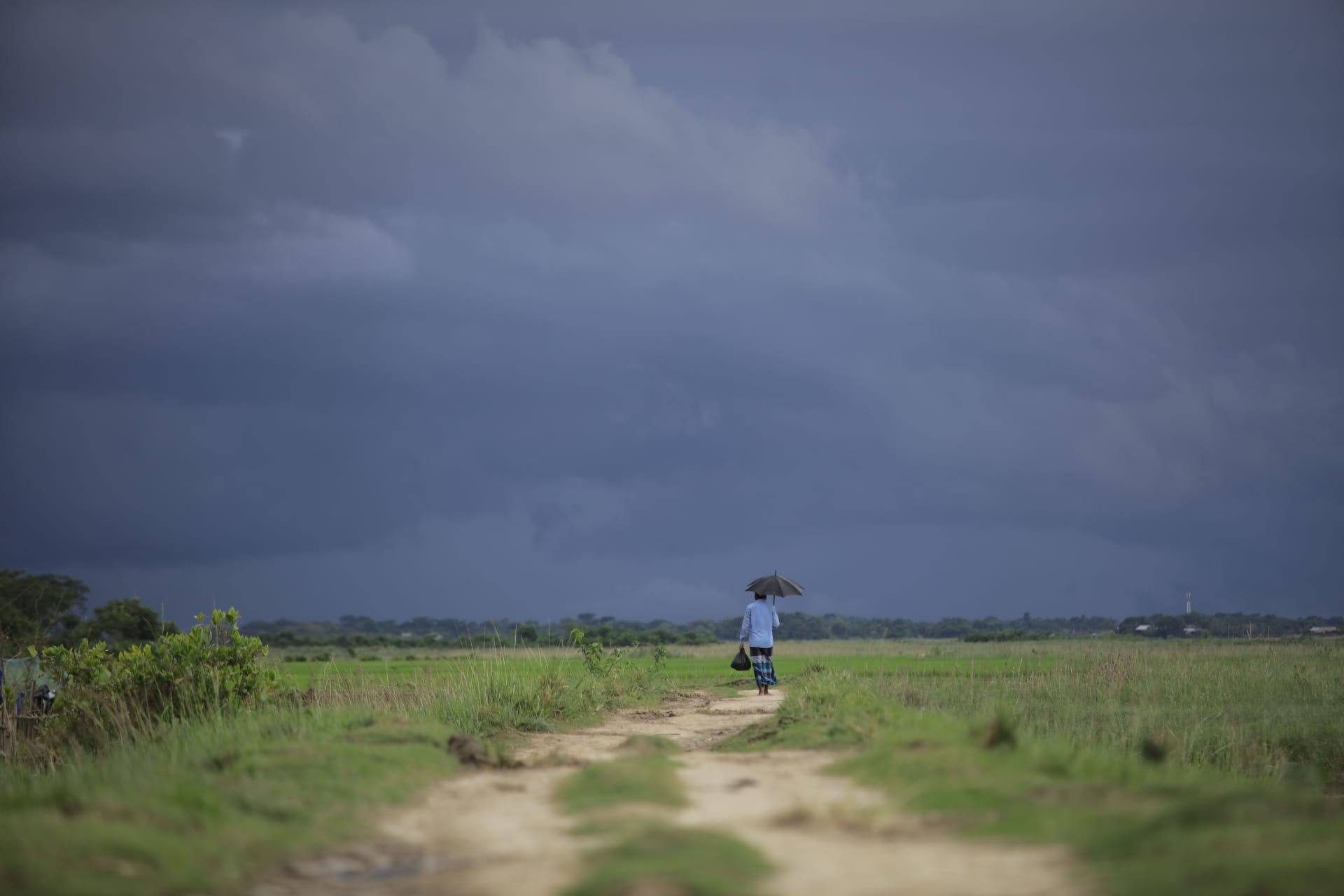Innovative care navigators boost maternal health in India | Takeda Stories
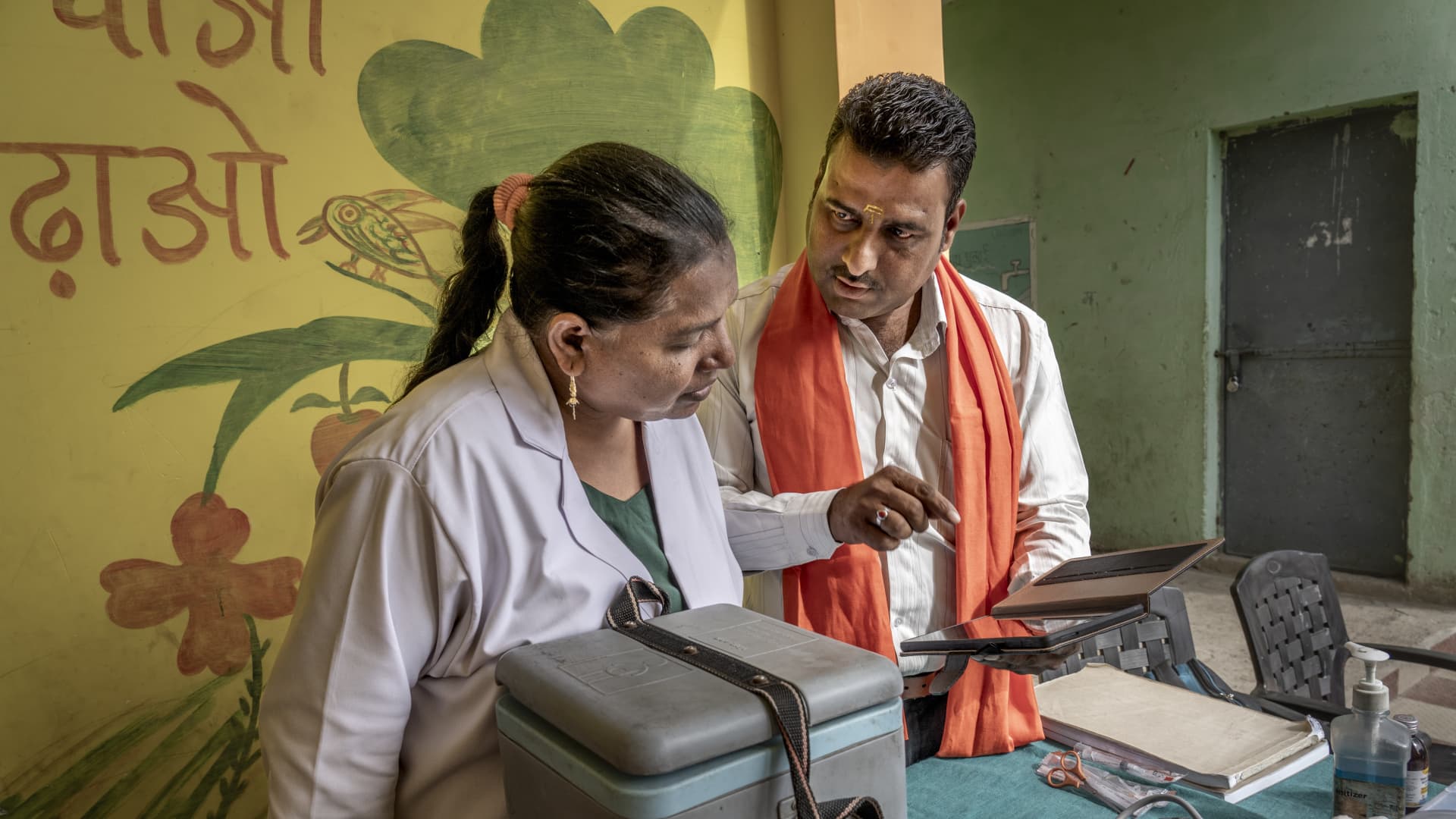
Innovative care navigators boost maternal health in India
“She did not want to lose her daily wage working in the pea field to visit the hospital. There is a lot of poverty in this area, and during harvest season, all the villagers prioritize their fields over everything else.”
Nek Narayan Patel, a patient care navigator based in a farming community in the state of Madhya Pradesh, India, recalls a client who was pregnant with her seventh child and severely anemic. Experience has taught him that expectant mothers often prioritize their family’s welfare over their own health, which is why he takes extra care to check on his clients who work the fields. On this occasion, he called for an ambulance to convince the mother to visit the health facility for a blood transfusion.
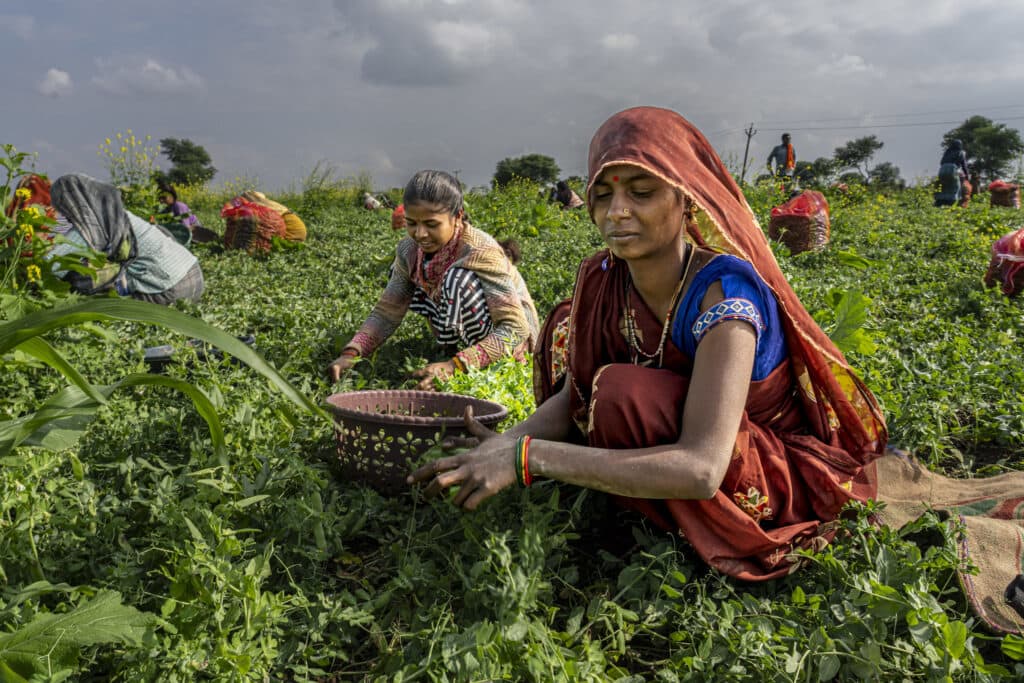
Women work on a pea farm during harvest season in Madhya Pradesh
According to the World Health Organization, every day in 2020, almost 800 women died from preventable causes related to pregnancy and childbirth.1 Meanwhile, India accounts for 17% of global maternal deaths and 26% of global neonatal deaths.2
UNICEF states that the direct causes of maternal deaths, such as severe bleeding, infections, high blood pressure, complications from delivery and unsafe abortions, are well known and largely preventable.3
Recognizing this, Jhpiego, a global health non-profit and Johns Hopkins University affiliate, established the iWIN project with the goal of preventing avoidable maternal deaths. Selected by employees in 2021 as part of our Global CSR Program, the project is funded by Takeda and conducted in partnership with the government of Madhya Pradesh. Dr. Somesh Kumar, senior director, Jhpiego Global, and country director, Jhpiego India, describes the project’s approach as client-centered, continuous and coordinated care.
“We aim to reach 43 percent of the state’s population and impact care for an estimated 900,000 annual pregnancies by leveraging technological solutions as well as programmatic innovations across public- and private-sector facilities,” he says.
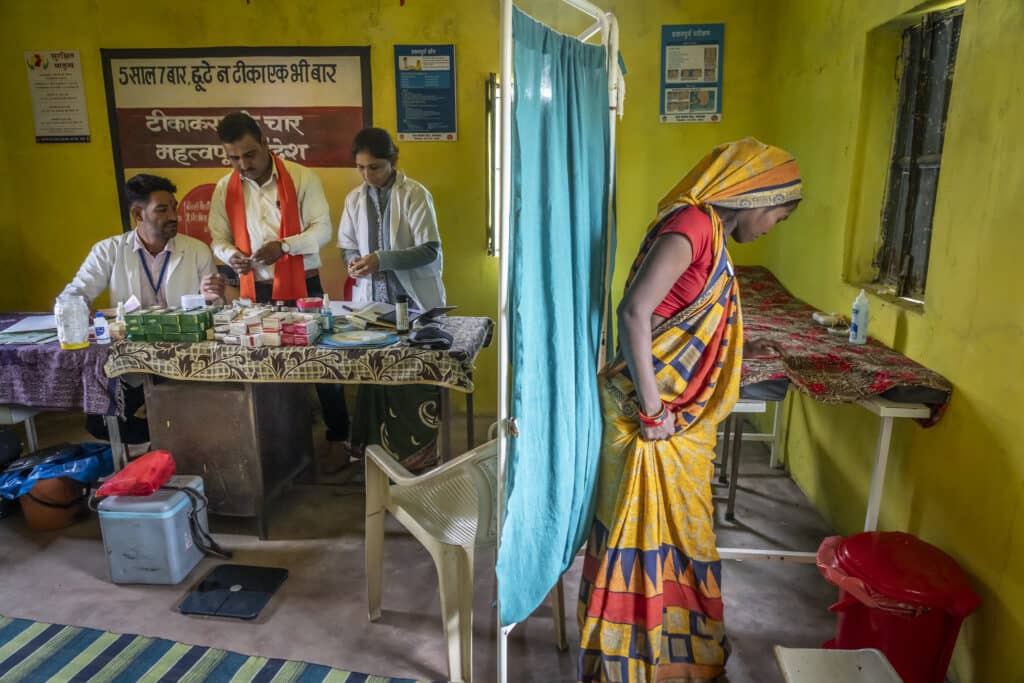
Auxiliary nurse midwife Lakshmi Sharma (third from left) works with Patel (second from left) while a pregnant client waits to be examined (far right)
“We are now able to accurately measure fetal heart rate using the fetal heart monitor, check how a pregnant woman is gaining weight through the weighing machine, check blood pressure through the blood pressure instrument and also accurately get the hemoglobin levels in blood samples using the hemoglobinometer – right here in the village,” she says.
Since the project began, Patel and the other care navigators have guided over 20,000 high-risk pregnant women in Madhya Pradesh, leading to the management of 91 percent of pregnancy-induced hypertension cases, 79 percent of anemia cases and 65 percent of gestational diabetes cases. And the success of the care navigator model has led projects in women’s cancer to adopt similar approaches to ensure the continuum of care from initial screening through to diagnosis, treatment and follow up.
This kind of outcome is meaningful to Toshie Ando, head of global CSR and partnership strategy at Takeda. She says she’s impressed to see the project’s impact so far, and eager to see more progress in the future.
“Our support for the iWIN project will continue until 2026, ensuring we build a platform for sustained progress and impactful results,” she says. “It’s the same long-term approach that has enabled our continued evolution and success over the last 240 years.”
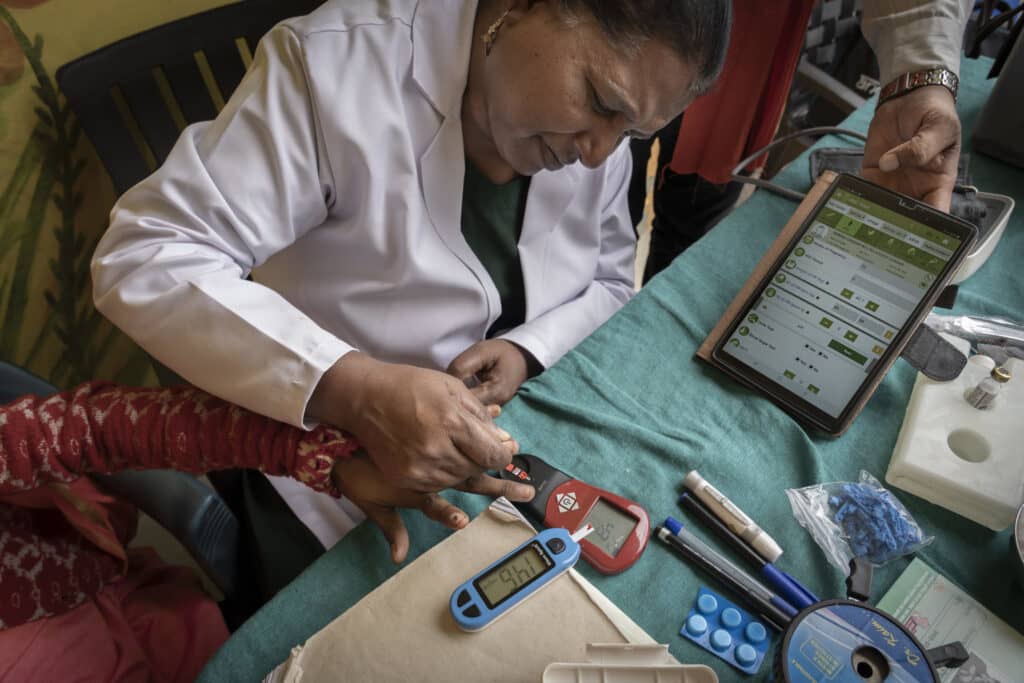
Auxiliary nurse midwife Lakshmi Sharma uses a diagnostic kit, including a Bluetooth-enabled fetal heart monitor and hemoglobinometer, to capture accurate data on her tablet.
To frontline health professionals like Lakshmi, this support and the addition of dedicated care navigators to the local health system has had a significant impact on their capacity to provide patients with the best possible care.
“Because of this, we are being able to detect more high-risk pregnancies and in earlier trimesters,” she says. “This helps us focus on our work and provide quality services to expectant mothers.”
- World Health Organization, Maternal Mortality. https://www.who.int/news-room/fact-sheets/detail/maternal-mortality
- Meh C, Sharma A, et al. Trends in Maternal Mortality in India over Two Decades in Nationally Representative Surveys. BJOG. 2022 Mar;129(4):550-561. doi: 10.1111/1471-0528.16888. WHO Report (2019): Trends in Maternal Mortality 2000 to 2017. Geneva: WHO, UNICEF, UNFPA, World Bank Group, and the United Nations Population Division.
- UNICEF, Maternal health. https://www.unicef.org/india/what-we-do/maternal-health
Share this story

